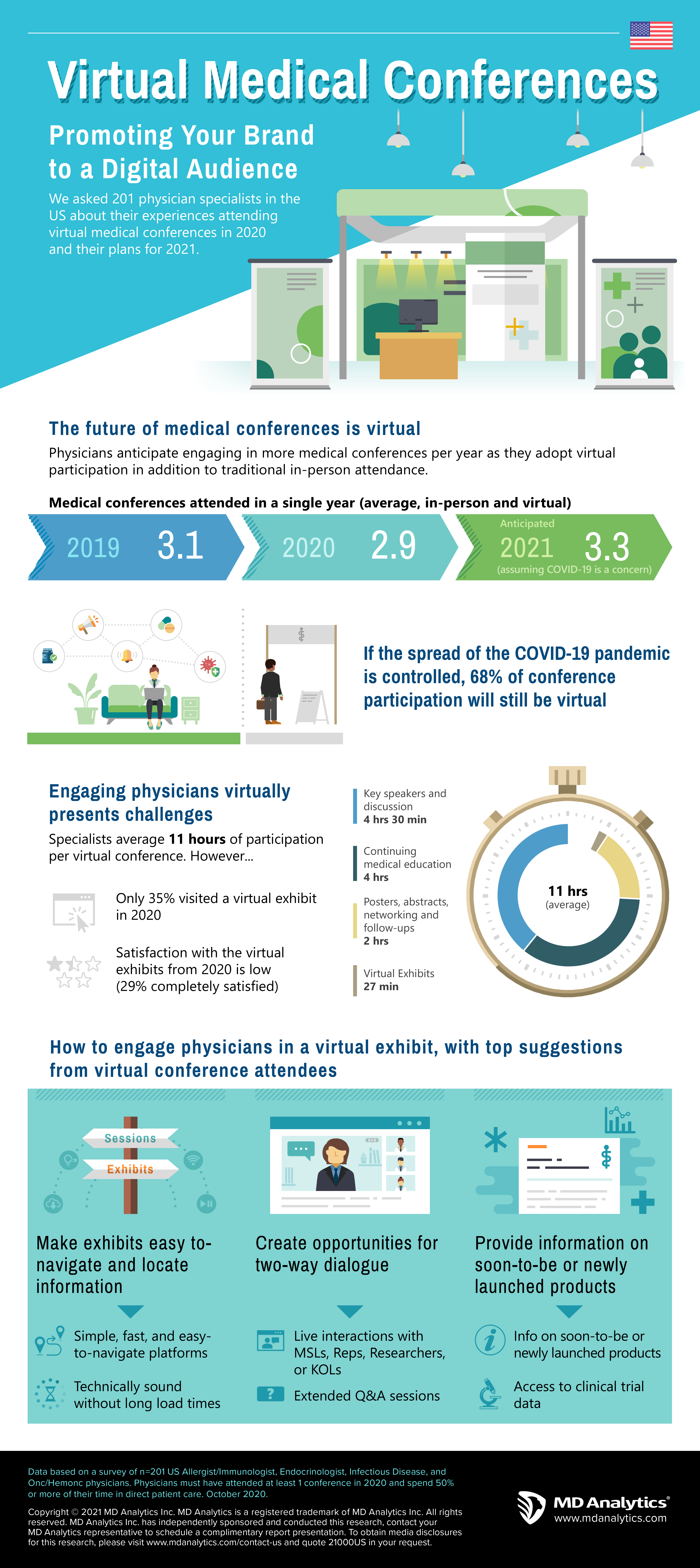Each year, providers and health industry professionals travel from locations around the world to share and discuss the latest developments in medical care. For several years now, conferences have been experimenting with digital features that allow participants to engage remotely, avoiding the burdens of travel. However, the scope of content available to digital participants had often been limited and physician adoption was low.
This all changed during the 2020 pandemic when conference organizers and medical brands were set scrambling to find a virtual solution that would obviate the need for outright cancelations. At a breakneck pace, virtual platforms were advanced to better emulate the face-to-face conference format and bring the overarching experience to physicians through digital means.
Read More
While the relative success of many virtual medical conferences was noteworthy, such as oncologists’ principal ASCO annual meeting, questions remained as to how well they’d met the needs of physicians and where improvements still needed to be made. Furthermore, many brand teams and conference organizers alike wondered if physicians would continue to embrace the virtual conference format once the impact of the pandemic subsided.
MD Analytics sought to answer these questions with a study among 201 medical specialists in the U.S., to gauge their reaction to 2020’s virtual events and their plans for attending major 2021 medical conferences.
We found, that in 2020, physicians report almost no drop in overall conference attendance, despite a near universal shift towards digital participation. Furthermore, 96% of physicians who attended a virtual conference in 2020, expect to attend at least one in 2021.
Yet, while attendance of conference remains steady, the overall time physicians spend engaging with content has dropped significantly. While physicians would previously spend 3 or more days engrossed in conference activities while onsite, they are now spending just 8 – 12 hours total, even for the most prominent events.
Of further importance to pharmaceutical manufacturers and medical device companies who use medical conferences as a platform to engage and inform their target physicians, very little time is being spent exploring product exhibits. These exhibits, which cost millions of dollars to develop and were a staple of the expo floor, collectively held physician’s attention for just 27 minutes in their digital reincarnated form. Even worse, two-thirds of physicians didn’t visit a single one.
Still, investment in activities that directly engage target physicians are worth exploring, and MD Analytics digs into physicians’ opinions on what was done well for these virtual exhibits, and where improvements could deliver a better experience. Details that are essential for teams working on their 2021 conference presence.
The last objective of the MD Analytics’ study is to look forward, and better understand the medical conference landscape we are heading toward. Despite a few hiccups in 2020, the virtual formal appears to be here to stay. Even assuming the COVID-19 pandemic is completely controlled, physicians estimate they will attend two-out-of-three future conferences digitally, averaging only 1 in-person conference attendance per year. And we explore which conferences they’ll attend, and how these numbers differ by specialty.
As the vaccine makes its way into arms across the world, a yearned return to normalcy will occur. The medical conference landscape, however, will be forever changed. While booming expos and extravagant booths begin to make their return, their new digital cousins will remain as a critical consideration for anyone looking to capture physician’s attentions. Brand and insight teams should consider learning what it takes to perform in this evolving medium or risk their targets’ attentions being directed elsewhere.
Key takeaways
• What are the top opportunities to engage physicians with virtual conference exhibits?
• Where are today’s virtual exhibits falling short of pervious in-person conference experience?
• How has the switch to virtual conferences affected physicians’ information consumption habits and the sources they rely on?
• Which conferences are physicians most likely to attend digitally versus in-person in 2021?

